MYTH: The “right help” for ADHD begins and ends with medication.
FACT: While medication can often be useful in dealing with ADHD, it is neither necessary nor always effective. The starting point in managing ADHD is education. One needs to learn about what ADHD is–and what it isn’t–in order to change it from a serious liability into a bonafide asset.
Books are a cost-efficient way to start the process. I can recommend my comprehensive book, Delivered from Distraction, written with Dr. John Ratey, but there are many other good books out there as well.
There are also excellent websites, chock full of free, valuable information. The best one for parents looking for help for children is Understood.org, which is a phenomenal resource. ADDA provides resources for adults.
Once you learn about ADHD—its positives and its negatives—then you get to work, with a good guide, a therapist of some sort who understands ADHD. Someone who takes a strength-based approach, to change whatever it is in your life that is causing you problems. Usually you need to work with a coach to get more organized.
Steps To Take:
- Get on a regular sleep schedule.
- Build exercise into your life.
- Consider the nutritional aspects of treatment.
- Reconsider your job or school situation in light of ADHD
- Making various structural changes in your life can make a big difference: the right filing system, the right organization scheme, the right daily schedule.
In addition, you will likely want to talk with your therapist about your family life. If you are a child, some family therapy will help. If you are an adult, couples therapy can make a big difference.
Beyond education, coaching, and therapy, it is important to have a plan for developing your talents and interests. This will take time, but it is key. You build a life not on weaknesses you have repaired, but on talents you have developed. Of course, fixing weaknesses can help you in developing your talents, so the two go hand in hand.
Click here for a list of comprehensive resources.
Click here to learn how the Hallowell Centers can help you.
Follow me on Facebook.
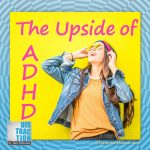
If you missed my podcast on the Upside of ADHD, listen HERE.
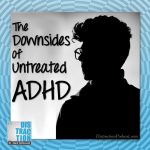
If you want to know about the Downside of ADHD, listen HERE.
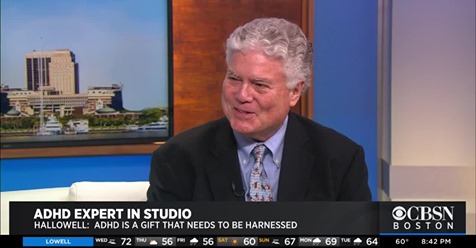
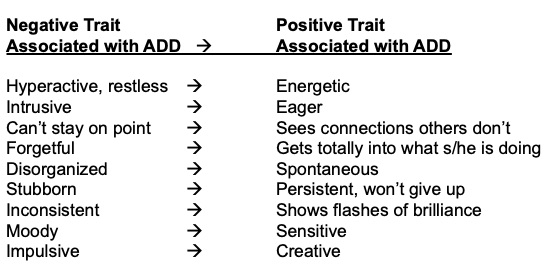
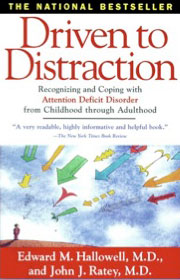 The month of October is ADHD Awareness Month. It also marks the 25th anniversary of the publication of Driven to Distraction.
The month of October is ADHD Awareness Month. It also marks the 25th anniversary of the publication of Driven to Distraction.





